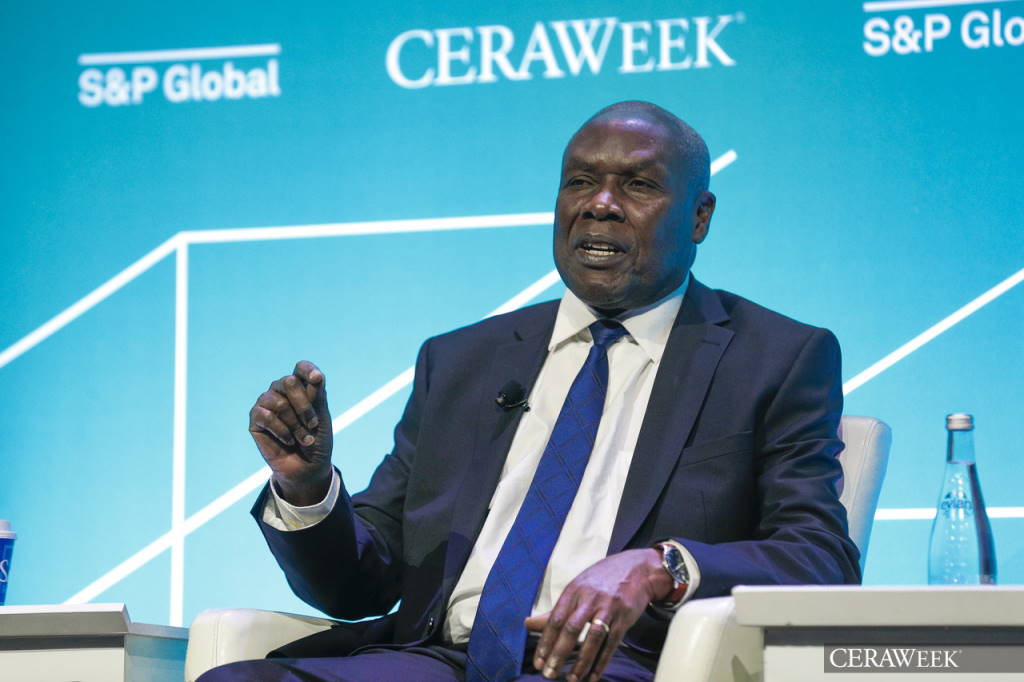
The need to transition from fossil fuels to sustainable energy systems should be counterbalanced with the development realities and needs of the African continent, and should not rule out the “sustainable exploitation” of the continent’s oil and gas resources.
That was the message of Sidronius Okaasai Opolot, the state minister of energy and mineral development, in a session at CERAWeek 2022, an energy conference held in Houston, Texas.
“We think that Africa needs special treatment through the provision of financing, technology and capacity building aimed at sustainable exploitation of its energy resources including fossil fuels, while striving to minimise emissions,” said Mr Opolot.
The minister added that Uganda largely utilises clean energy, and is making headway in extending electricity – which he referred to as “one of the clean energy sources” – to rural areas.
“The country has abundant natural resources such as hydro, geothermal, petroleum resources, wind, and solar energy, among others, yet only a small fraction of this potential has been developed,” said Mr Opolot as he appealed for foreign investment to help deepen Uganda’s energy sector.
Demetrios Papathanasiou, the global director for the World Bank’s energy and extractives global practice, said that the bank is ready to offer funding for energy projects in Uganda.
CERAWeek, which refers to itself as “the world’s preeminent energy conference”, is an annual meeting of the world’s energy industry leaders, experts, government officials and policymakers, and participants from the technology and financial sectors. This year’s edition was held from March 7 to 11.
Uganda’s delegation to the conference was led by Mr Opolot and included officials from the Petroleum Authority of Uganda and the Uganda National Oil Company.
The minister’s panel, titled “Africa: Power to the people”, explored the challenges facing the energy sector in sub-Saharan Africa overlaid with “the pressures and opportunities associated with the global energy transition.
“The combination makes for complicated choices in investments and trade-offs for priorities between generation from fossil fuels, large-scale hydro and other renewables, transmission reinforcement and off-grid/captive solutions, fossil plant upgrades or retirements, and site re-purposing; national supply security and regional interconnected trade; and the market models needed to underpin them.”
Other panellists included Andy Barrett, the senior advisor for global gas, power, and energy at S&P Global, André de Ruyter, group executive of South African utility Eskom Holdings SOC Ltd, and Lawrence Jones, the vice president of international programs at the Edison Electric Institute, an association that represents all U.S. investor-owned electric companies.






